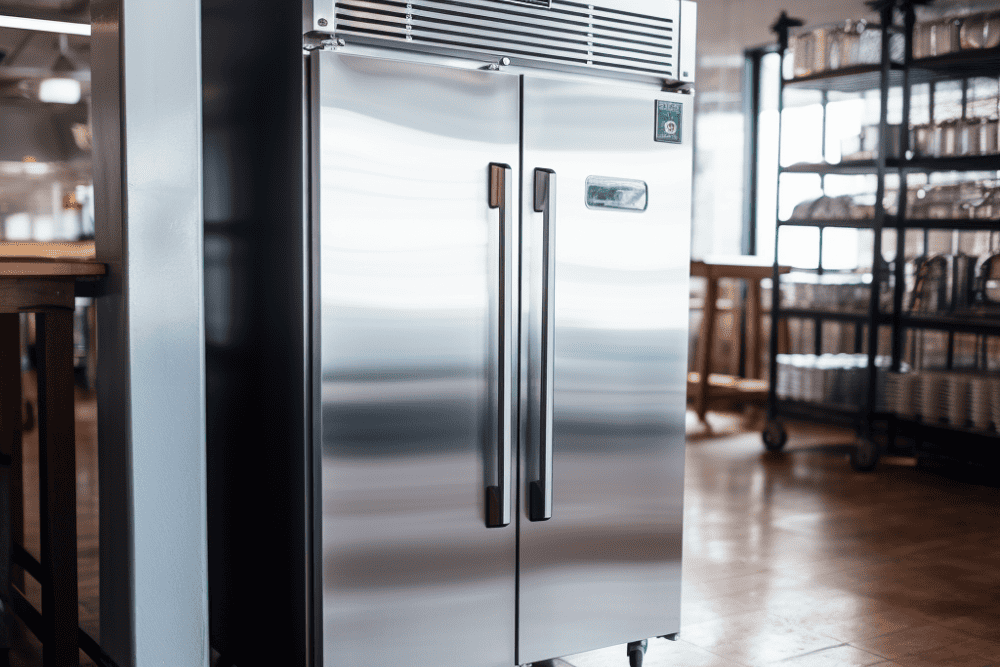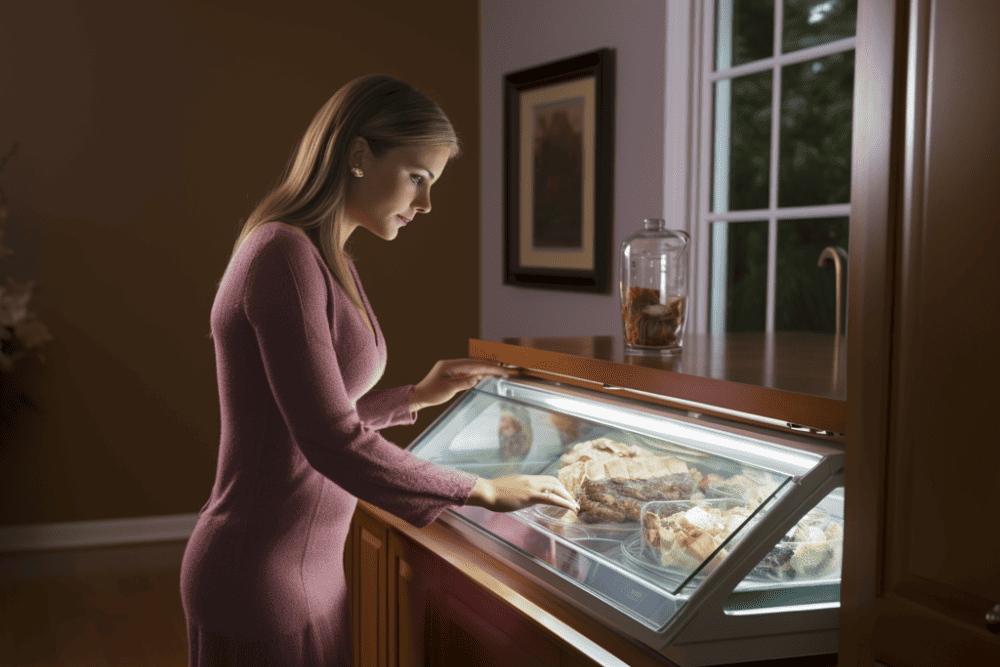Using a commercial freezer in your home offers several advantages. With powerful cooling systems, these freezers maintain consistent temperatures, effectively preventing freezer burn and keeping food fresher for longer.
Commercial freezers are built to last. They’re specifically designed for a commercial kitchen - so they have to be more durable and last longer than a residential freezer. As a result, commercial freezers often come with a two- or three-year warranty, making them a reliable and worthwhile investment for your kitchen.
Homeowners often opt for commercial freezers due to their larger storage capacity, which allows for storing more food compared to residential freezers.
Commercial freezers often boast strong exteriors, usually made of stainless steel or scratch-resistant and polished glass, which are designed to withstand the wear and tear of a busy kitchen with lots of people bustling about.
They can also resist corrosion while maintaining a sleek and modern look in your kitchen. Commercial freezers also feature fast cooling, ensuring your food is frozen quickly.
Understanding the different types of commercial freezers can help you decide if one is suitable for your home.

A commercial upright freezer in a restaurant
Reach-in freezers are common in commercial settings, featuring a stainless steel exterior and heavy-duty shelves for durability. Most reach in freezers have an upright freezer design similar to a french door refrigerator that you might find in a residential kitchen.
They feature ample storage space and easy access. Many even come with adjustable shelf options (as shown in the video below).
You won’t have to bend over to sift through a mound of frozen food items like you would have to with a commercial chest freezer. They're a preferred choice for businesses and homeowners needing extra freezer capacity.
The ColdTech freezer is solid freezer with a reach-in style design and adjustable shelving. It is backed with a warranty, easy to clean, and ensures food safety with digital temperature control.
Display freezers have a glass front door for easy item viewing. Businesses commonly use display freezers to showcase frozen goods. However, you can also use them at home to conveniently see your frozen items. The glass front helps you keep track of your stored items, while the shelves provide organized storage.
Before buying a commercial freezer for your home, take time to consider some key elements. This section covers three critical factors: energy consumption, noise level, and compressor quality.
Energy efficiency should be a top priority. Commercial freezers typically use more energy than residential ones. Assess available models' energy consumption rates to help you make an informed decision.
Look for models with lower energy usage, as this not only helps reduce your electricity bills but also minimize your environmental impact.
Noise Level
Commercial freezers can produce more noise than their residential counterparts. The sound generated by the freezer might disturb you and your family or bother close neighbors.
Reading customer reviews, visit stores with live display units, and ask sales representatives about noise levels to choose a freezer that operates smoothly without causing too much distraction.
A crucial component of any freezer is its compressor. A freezer's compressor affects its overall performance and longevity. Opt for models with known reliable compressors from reputable brands to ensure your commercial freezer works efficiently for years to come.
By carefully examining these elements - energy consumption, noise level, and compressor quality - you can confidently choose a commercial freezer that suits your needs and integrates seamlessly into your home environment.
You can adapt a commercial freezer for use in your home. Let's consider how to integrate it into your kitchen design and find the best option for your needs.
When choosing a commercial freezer for your home, think about how it fits into your kitchen layout. You want the freezer to blend in with your kitchen decor and not take up too much space. There are a few options you can consider:

A commercial glass top display freezer in a residential kitchen is possible - although it would be unusual
Remember to consider the freezer's size, capacity, and your available kitchen space when choosing which option best suits your needs.
While using a commercial freezer at home, you may face a few challenges. In this section, we'll address two key issues: Depth and Space Requirements, and Maintenance and Repair.
Commercial freezers are oftentimes significantly larger than residential ones, offering higher storage capacity for food preservation. However, this means you'll need more space at home.
To overcome this, measure your available space before buying. Consider the unit's dimensions, ventilation, and accessibility requirements to ensure a proper fit in your layout.
Commercial freezers are built to withstand the demands of food service environments, which means their maintenance and repair requirements may differ from residential units. Due to the rigorous use they undergo, parts such as compressors or fan motors may wear out more quickly.
Regular maintenance, including cleaning condenser coils and inspecting door seals, is vital for both commercial and residential freezers to ensure optimal performance and longevity.
Repairing a commercial freezer for home use can be challenging as finding technicians specialized in these units might be difficult. However, you can overcome this obstacle by finding a reputable professional experienced in commercial appliance repair.
Building a relationship with such a technician ensures your freezer remains in excellent condition and operates efficiently.
We understand that you may have questions regarding the use of commercial freezers at home. We have prepared the following section to address your concerns.
Commercial freezers are designed for heavy-duty use in businesses and come with larger storage capacities. They are typically more durable and made from commercial-grade materials.
On the other hand, regular freezers are less expensive and smaller in size. They are designed for residential use and may not perform as well in demanding situations.
Before using a commercial freezer at home, it's important to consider a few factors. Size and Energy, Noise Level and Warranty. By carefully considering these factors, you can make an informed decision about using a commercial freezer in your home.
